UWW organizes fourth edition Event Organizing Workshop
Wednesday, October 23, 2024 - 13:32 By United World Wrestling Press

TIRANA, Albania (October 23) — Over the last decade, United World Wrestling (UWW) has focused on improving the quality of its events. To keep this improvement on track, UWW organized its fourth edition of the Event Organizing Workshop from October 17 to 22 in Tirana, within the framework of the U23 World Championship.
Nine countries, including China, Italy, Jordan, Saudi Arabia, and Namibia, participated in the workshop, which was held before the U23 World Championships.
Led by UWW Sports and Development Officer Yuri MAIER (ARG) and Senior Competition Manager Ramil AHMADOV (AZE), the workshop provided valuable insight into the complexities of organizing international wrestling events.
Participants arrived in Albania on October 17 and engaged in four theoretical sessions on October 18 and 19. On October 20 and 21, they had the opportunity to apply their knowledge practically by observing key event functions such as the technical meeting, draw, and weigh-in.
In addition to covering many relevant topics, the workshop featured contributions from UWW staff members specializing in Accreditation, Photography, Technology & Results, and Marketing and Communications. These sessions, which were held with the support of local organizing committees, helped participants understand the role of various departments in delivering a successful event.
 Kadir CALISKAN (GER), UWW's Photo Manager, presents at the Event Organizing Workshop. (Photo: United World Wrestling)
Kadir CALISKAN (GER), UWW's Photo Manager, presents at the Event Organizing Workshop. (Photo: United World Wrestling)
Participants gave overwhelmingly positive feedback, praising the workshop’s structure and content. One attendee highlighted, "The level of engagement and interaction during the sessions was fantastic. The facilitators were knowledgeable, and the practical exercises were crucial in helping us understand how to apply the concepts in real-world scenarios."
Another participant added, "The networking opportunities were invaluable. Meeting professionals from different countries allowed us to exchange ideas and best practices, which will certainly help in future event organization."
Maier emphasized the importance of continuous learning, stating, "Workshops like this allow us to strengthen our network of event organizers across the world. By sharing experiences and knowledge, we ensure that every event is better than the last."
Ahmadov echoed this sentiment, adding, "The practical experience of seeing the U23 World Championship preparation up close is invaluable. It’s one thing to discuss logistics in theory but seeing them unfold in real time makes all the difference."
Overall, the Event Organization Workshop provided an excellent learning platform for participants, empowering them to organize events more efficiently and effectively in the future. It contributed to the growth and be capable of delivering better wrestling events worldwide.
United World Wrestling will continue to support and organize such Workshop in the years to come and already welcome all the interested Federations for the next editions.

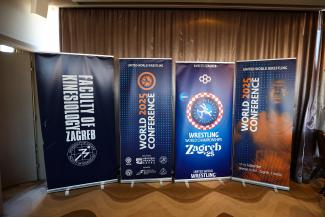
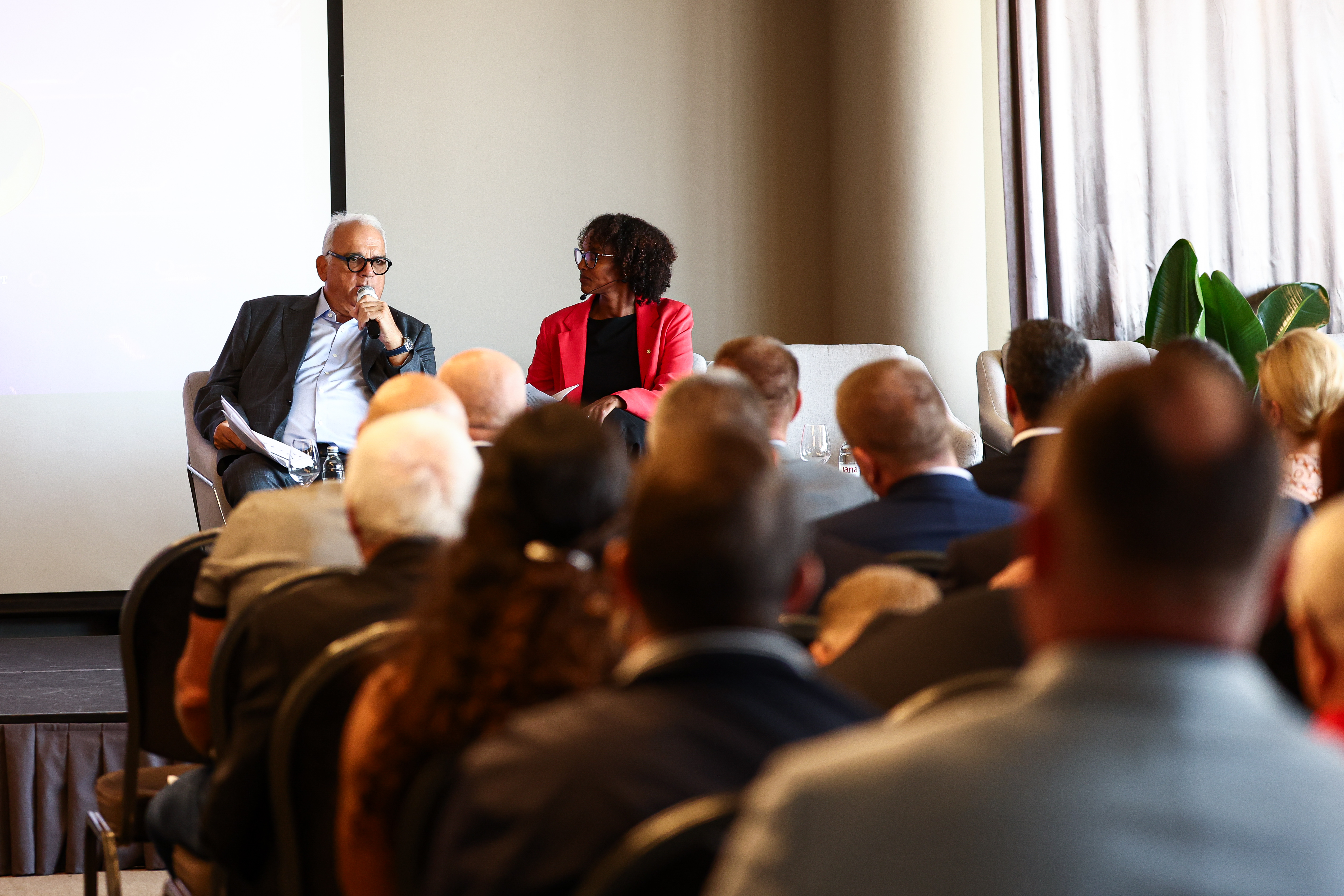 United World Wrestling President Nenad LALOVIC at the World Conference. (Photo: United World Wrestling / Jake Kirkman)
United World Wrestling President Nenad LALOVIC at the World Conference. (Photo: United World Wrestling / Jake Kirkman)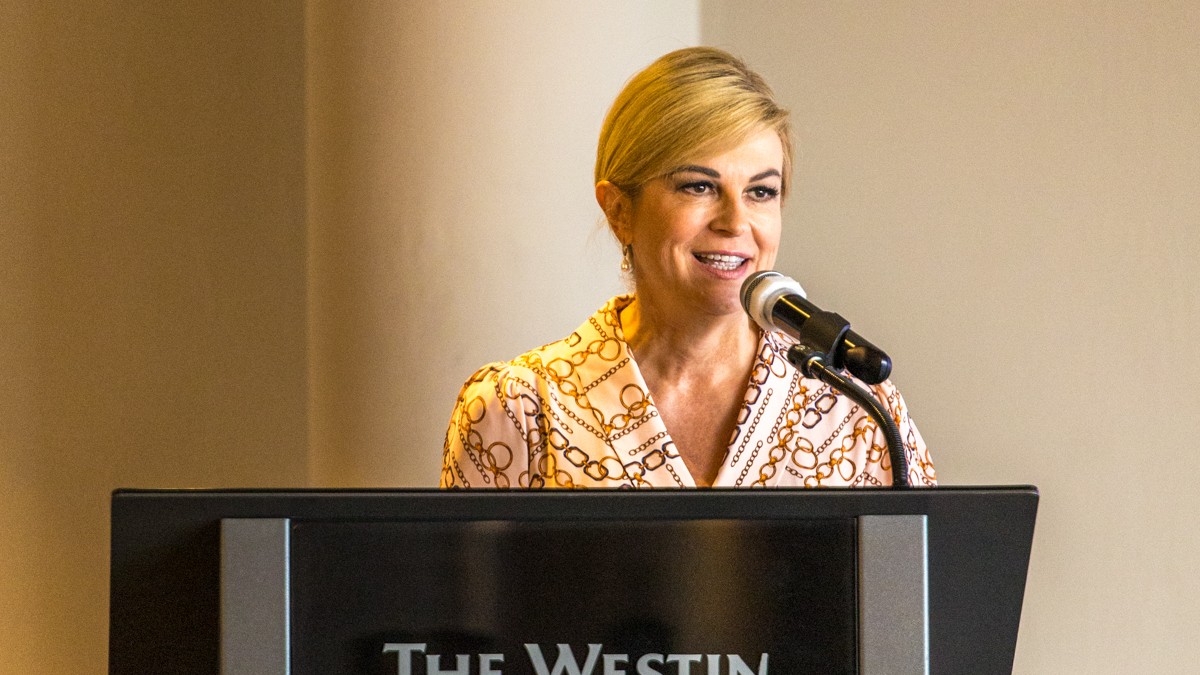 International Olympic Committee member and former President of Croatia Kolinda GRABAR-KITAROVIC.
International Olympic Committee member and former President of Croatia Kolinda GRABAR-KITAROVIC.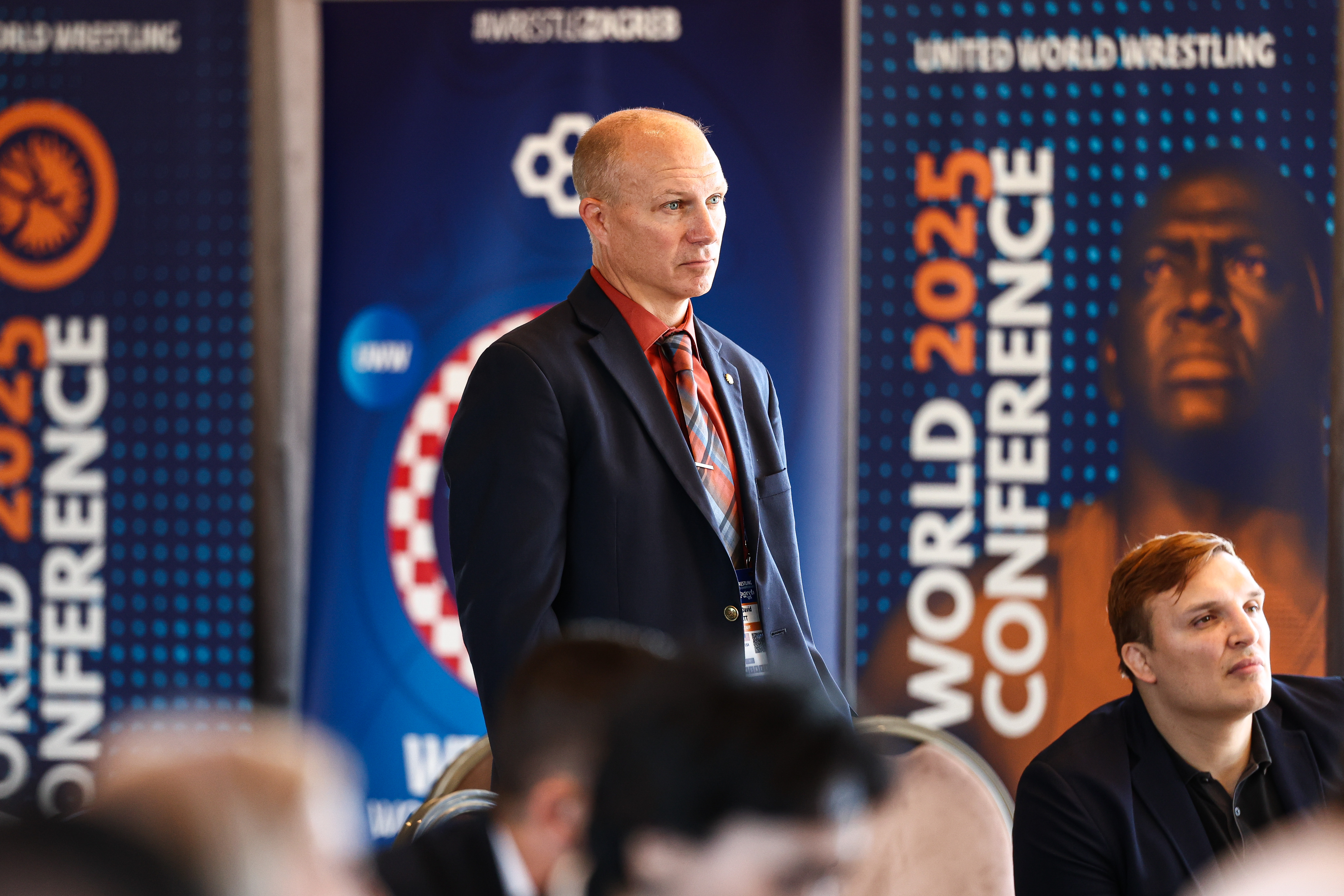
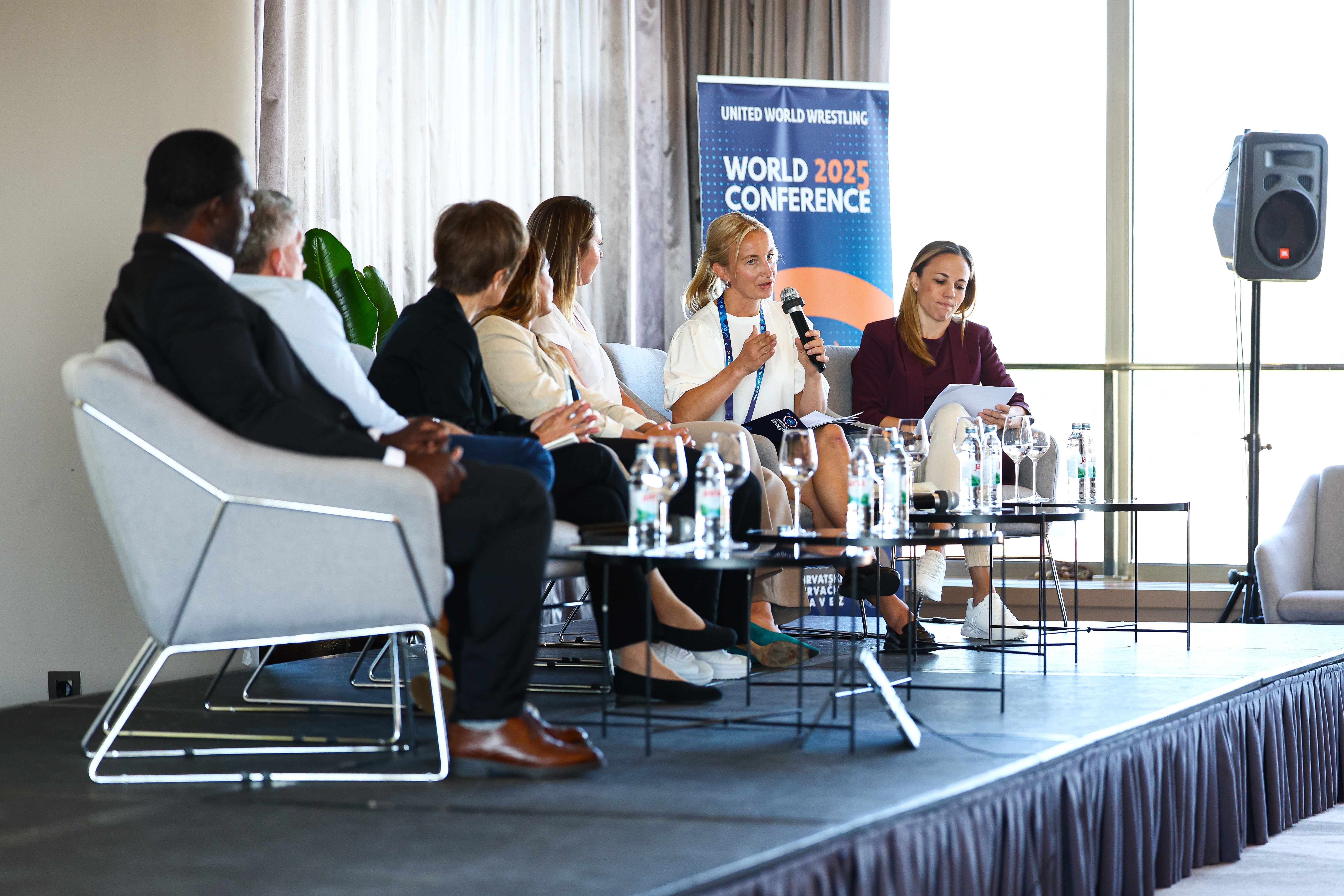
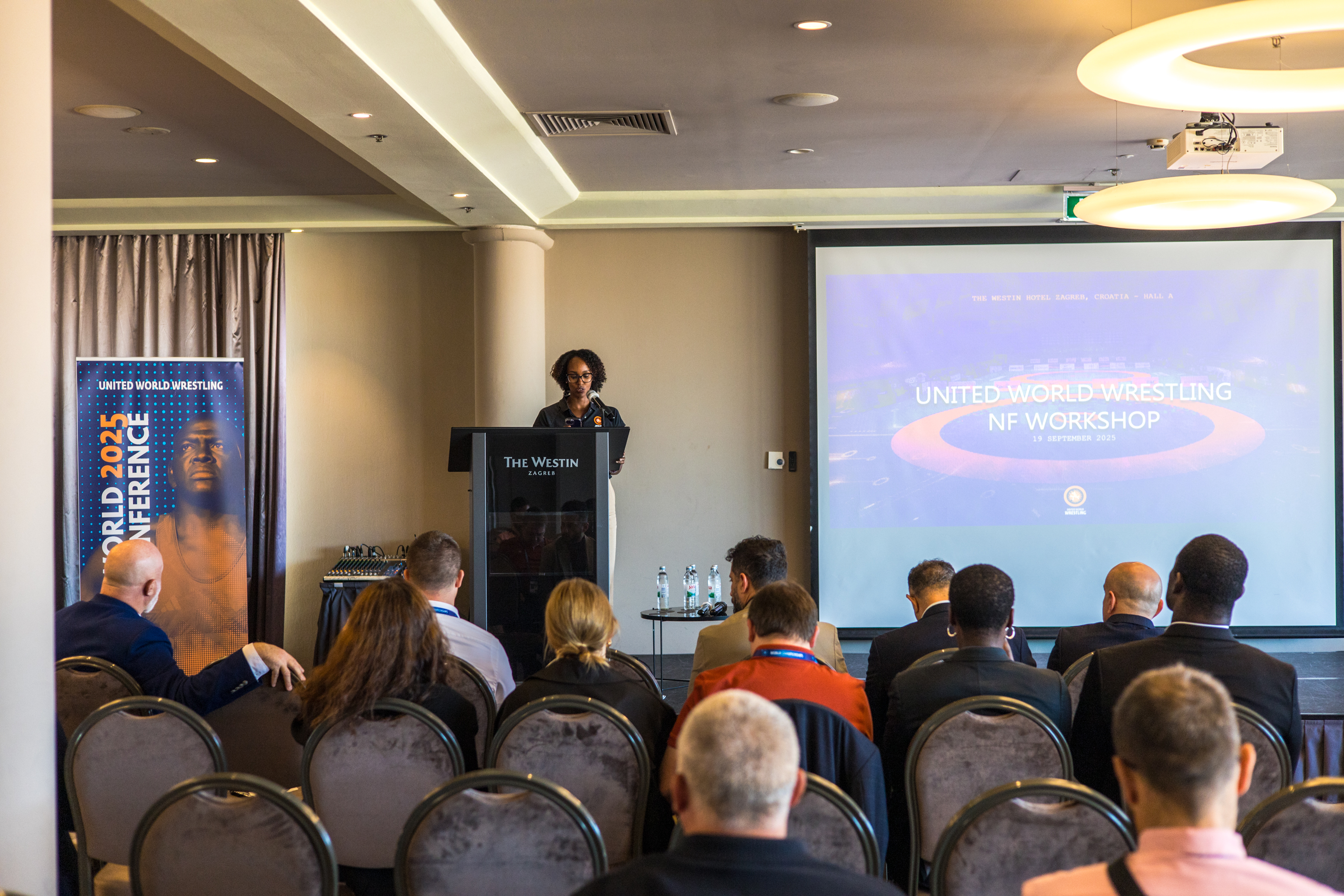 A national federation workshop organized by United World Wrestling in Zagreb.
A national federation workshop organized by United World Wrestling in Zagreb.
Share your thoughts.
Comments